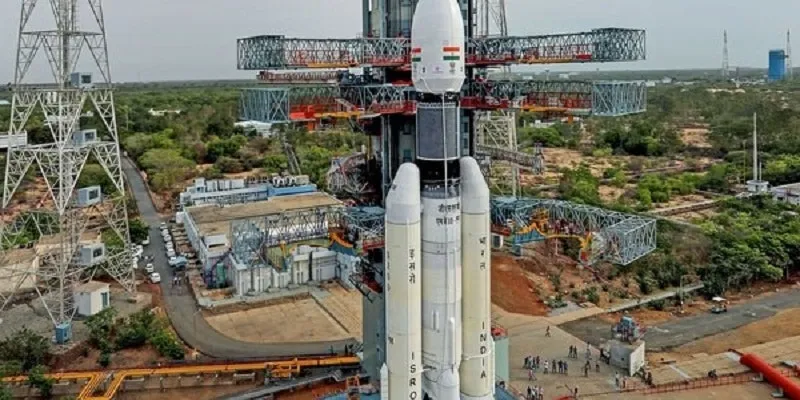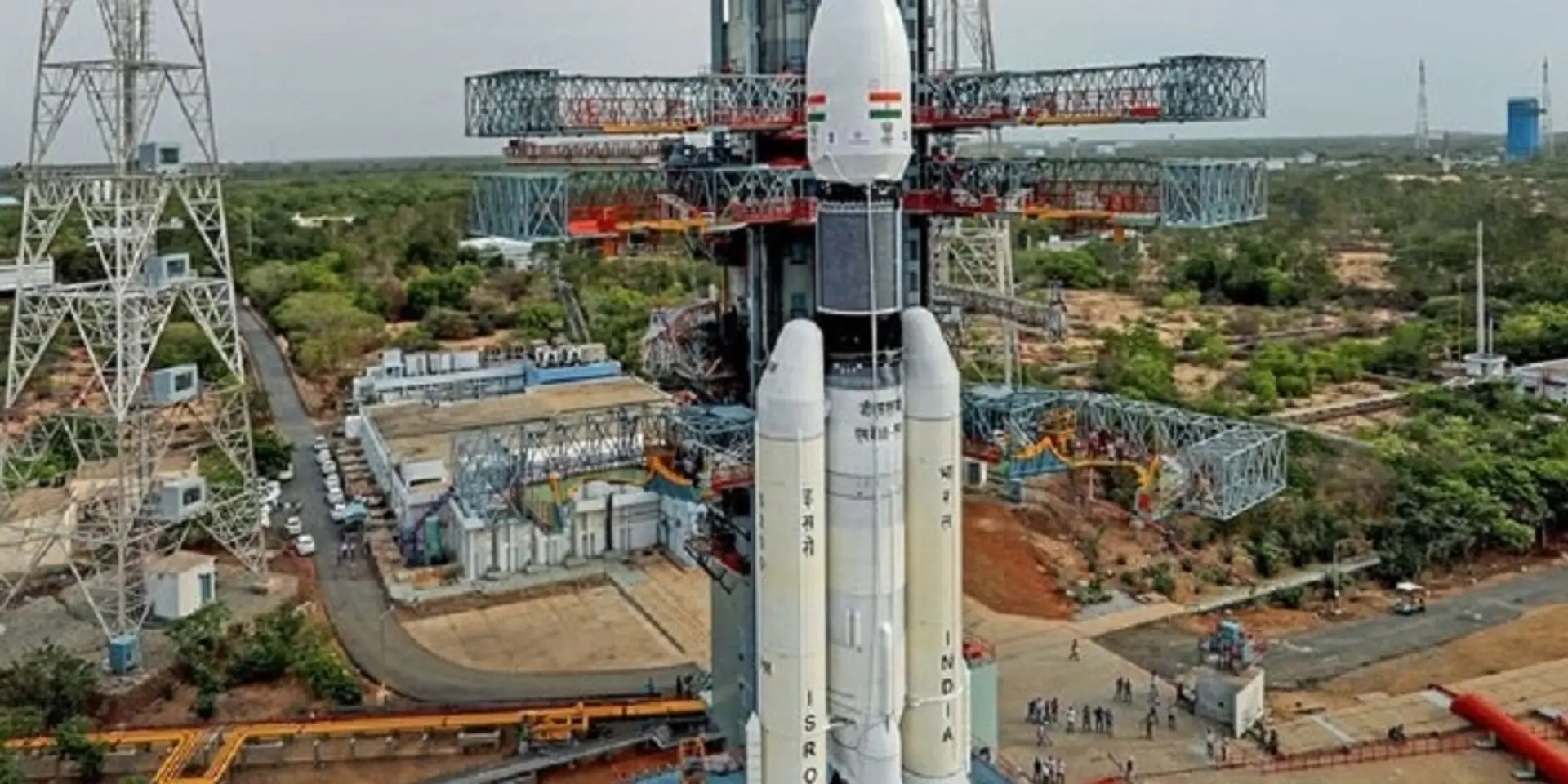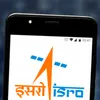ISRO readying for low cost satellite launch vehicles
ISRO has earmarked 1,600 million for launch vehicles, of which 870 million will be for PSLV and the remaining for Geosynchronous Satellite Launch Vehicle
The Indian Space Research Organisation (ISRO) is readying low-cost satellite launch vehicles costing about Rs 30-35 crore each, which can put into orbit satellites weighing 500 kg.
The first such launch from the country is expected to take place in the next four months.
In a panel discussions at 'EDGE 2020, The Space Conclave', Deputy Director of Vikram Sarabhai Space Centre Haridas TV, said:
This capability will give ISRO a big commercial boost as it will be able to cater to micro, mini and medium segments of the market.

Image: PTI
"The biggest advantage is that ISRO now can manufacture these vehicles in a turnaround time of just three weeks," he said.
ISRO has earmarked 1,600 million for launch vehicles, of which 870 million will be for PSLV and the remaining for Geosynchronous Satellite Launch Vehicle, he revealed.
ISRO has planned some 50 RPT 50 Polar Satellite Launch Vehicle launches in the next five years, a press release quoting Haridas said.
The Government Owned Contractor Operated (GOCO) model is picking up very well in the space and defence sectors.
"We want to leverage it to the maximum in the coming days," he added.
Earlier, in his keynote address at the session, titled 'Navigating Space Industry Through Innovation, Agility and Collaboration,' Dr Rabin Giles, Director Innovation, CNES Connect said there is tremendous scope for cooperation between France and India in the development of space technology.
"India and France can work to set up a model for the Moon programme," he said.
Elaborating on the cornerstones for a space deal, Dr Giles said partnerships are the solution.
Next come science, which is the DNA and thirdly, the connect needed to the downstream sector.
Dr Giles said the space industry is a sector where 'patience and dream' play a big part.
"Innovation needs trust and failure is an option" is the dictum that he follows when he works with start-ups, said he said adding the key factor was trust.
Dr Daniel Baker, Director of Americas LASP Programme, stressed the need for students from Universities to take part in space research programmes.
In this context he lauded the new Space Park, which will be a launch-pad for exploration.
The seeds of success will be in replicating the success of the LASP here, he said.
Collaboration, Innovation and Agility are the key to a successful space programme, said Raqib Islam, UK Space agency.
Taking collaboration forward, the UK Space Trade Mission had visited India last week to explore areas of cooperation, he said.
PSR Sastry, Director DSP, Defence Research and Development Organisation said DRDO was trying to make cost- effective technologies work for them.
Later, in a session titled 'Enablers of Space Industry Challenges and Insights into Space Regulations and Policies,' Dr Ranjan Kaul, Partner, Dua Associates, Shri Abhishek Malhotra, MD, TMT Law Practice and Shri Nitin Pai, Co-founder, Takshashila Institution,concurred on the need to encourage the private sector to play a potent role in the country's space sector and the need for enacting legislation for the same.
Space is an engine of growth. Liberalisation of space is needed in the national interests, they said, adding that the private sector should be allowed in all the sectors of the space industry.
"Treat private and government players on a level playing field," they added.








